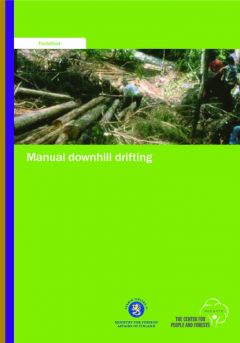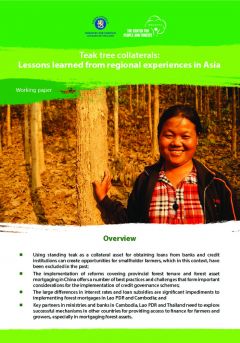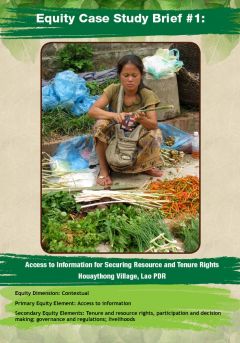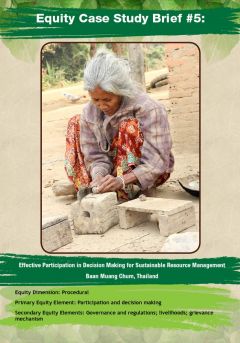Location
RECOFTC
RECOFTC is derived from an abbreviated form of the organization's legal name, Regional Community Forestry Training Center for Asia and the Pacific. Formerly the organization was known as RECOFTC – The Center for People and Forests.
RECOFTC – The Center for People and Forests is an international not-for-profit organization that focuses on capacity building for community forestry in the Asia Pacific region. It advocates for the increased involvement of local communities living in and around forests - some 450 million people in Asia-Pacific - in the equitable and ecologically sustainable management of forest landscapes.
The Regional Community Forestry Training Center for Asia and the Pacific (RECOFTC) opened in Bangkok, Thailand, in March 1987 with support from the United Nations Food and Agriculture Organization, the Government of Switzerland (through the Asian Development Bank), and Thailand's Kasetsart University.
Community forestry is widely acknowledged as a powerful solution for many of the challenges facing local people and the wider society, especially in improving rural livelihoods, enhancing community governance and empowerment, transforming forest-related conflict, protecting and enhancing the environment, and helping to fight climate change. As a capacity-building organisation, RECOFTC improves the ability of people and organisations to conduct community forestry effectively and sustainably.
RECOFTC works toward its mission through four thematic areas:
- expanding community forestry
- people, forests and climate change
- transforming forest conflict
- securing local livelihoods.
Members:
Resources
Displaying 151 - 155 of 485Appropriate Small-scale Forest Harvesting Technologies for Southeast Asia: Manual Downhill Drifting
Steep-slope harvesting probably poses the biggest challenges in forest harvesting throughout the world. Traditionally, on slopes above 30 percent, gravitational transport is applied in manual harvesting operations by simply sliding logs downhill.
Teak Tree Collaterals: Lessons Learned from Regional Experiences in Asia
This brief gives an overview of how using standing teak as a collateral asset for obtaining loans from banks and credit institutions can create opportunities for smallholder farmers as well discussions on the implementation of reforms covering provincial forest tenure and forest asset mortgaging in China that offers a number of best practices and challenges that can be considered in the implementation of credit governance schemes in the ASEAN region.
Equity Case Study Brief #1: Access to Information for Securing Resource and Tenure Rights Houaythong Village, Lao PDR
Equity Case Study Brief #5: Effective Participation in Decision Making for Sustainable Resource Management - Baan Muang Chum, Thailand
In this case, equity issues were brought about by the absence of participation mechanism in forest management as the communal rights system in practice was not sufficient to control resource utilization within the community.
RECOFTC Country Engagement Strategy - Thailand
Thirty-seven percent of Thailand’s land area of 51 million ha or 19 million ha is covered by forest. Half of Thailand’s 67 million population lives in rural areas, with members of many rural families working in cities or in other off-farm income-generating activities. It is estimated that about 20 percent of Thailand’s villages (12 million people) are located within forest reserve areas. However, Thai state forestry, until relatively recently, focused overwhelmingly on extracting timber and keeping local people away from forests. The recent Constitutions of B.E. 2550 (2007) and B.E.






